How To Choose A Trumpet
Congratulations! You are about to buy your first Trumpet...
How can you tell which Trumpet you ought to be purchasing? With so many options, and also the costs of the instruments ranging so wildly, it’s crucial you have all of the proper info to help you on the way. We hope our Beginner’s Guide To Learning The Trumpet is helpful to you.
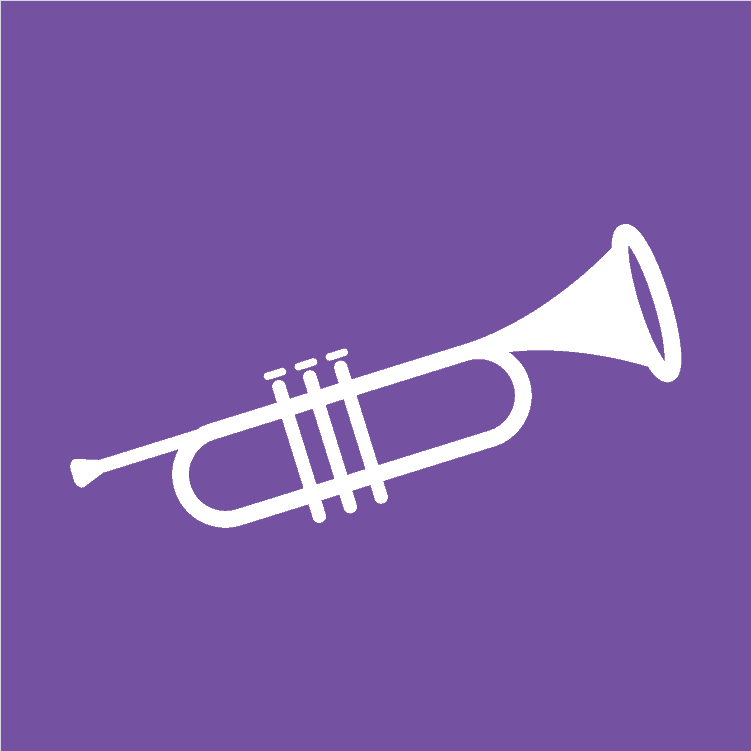
Things you should know before buying your first Trumpet
When deciding which trumpet is best for you, think about what you intend to do with it. You might be thinking “what a stupid thing to say! I intend to play it!”. But before deciding which trumpet is best for you, you should think ask yourself a few key questions:
- What sort of budget do you have? Remember, as with most things in life; you get what you pay for – so it’s worth saving your pennies to get the best you can.
- What type of sound are you after? Do you want a bright ‘lazerbeam’ noise which cuts across a jazz band or a big band, or a soft ‘golden’ tone which will help you blend into a brass band or to play a beautiful melody?
- How clumsy are you? We all think of brass as hardy, but trumpets are surprisingly easy to damage and the slightest dent can make a difference. So if you’re accident-prone, factor this in.
- How strong are you? Pocket trumpets can work well for young children due to their size but aren’t ideal for adults due to the poor sound quality.
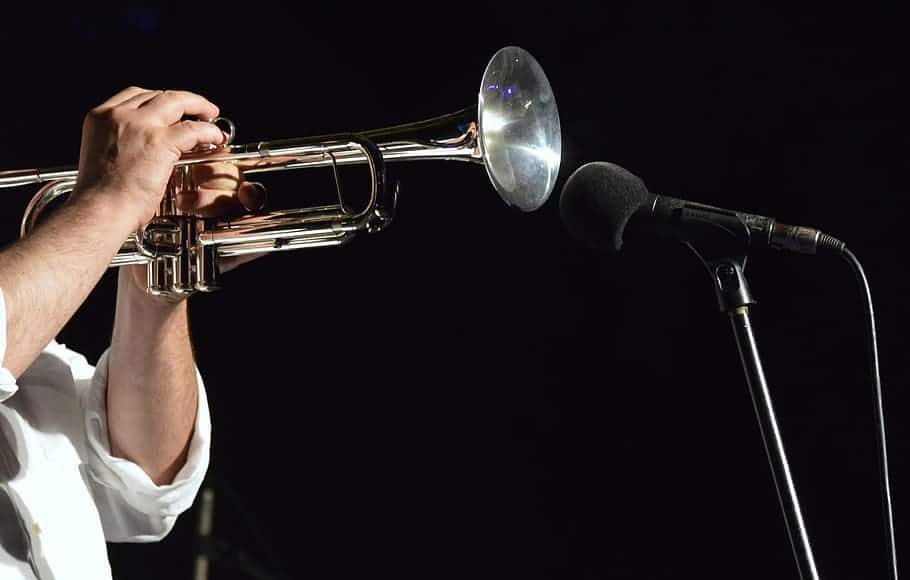
What sort of Trumpet should I buy?
As a trumpet player one of the most exciting rungs on your musical ladder can be playing with others in an ensemble. The great thing about the trumpet is that it’s versatile and there’s a huge range of different ensembles you can play with. But different groups require different sounds. So let’s have a think about what type of trumpet works best in different scenarios. Even if you’re only intending to be playing by yourself for a while then it’s still a good idea to know what style of sound you’ll be achieving with each type of trumpet.
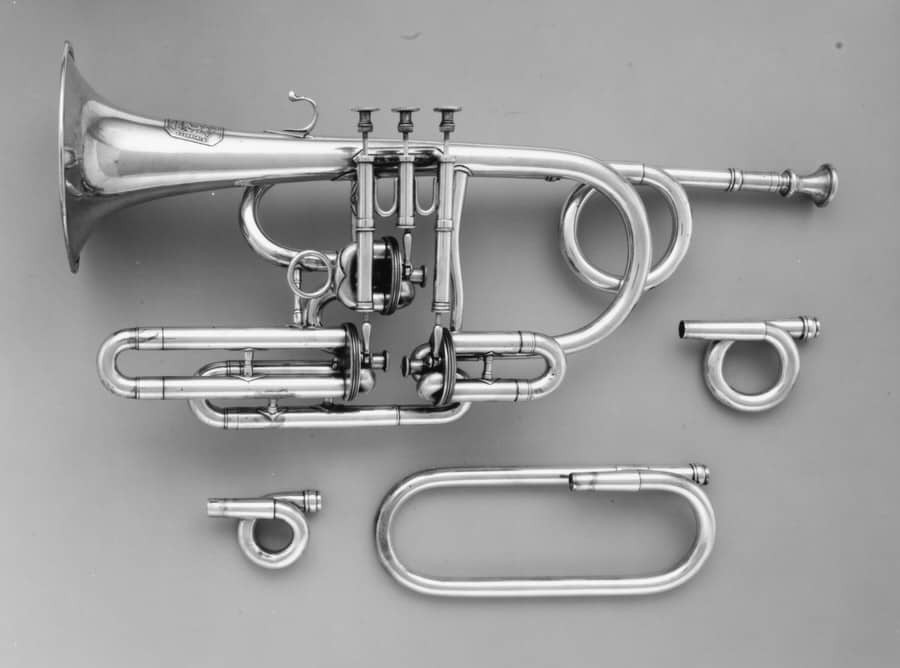
Cornet
Many think of the cornet and the trumpet as one and the same, but they are actually different instruments even though they’re closely related. The cornet is more compact and has a wider bore (tube), which produces a dark and mellow sound which can often be found in brass bands, wind bands and sometimes orchestras. That type of sound is rarely heard in jazz bands or pop bands. Playing the cornet requires an almost identical technique to the trumpet and the same valve combinations as a Bflat trumpet. To give you an idea of the sound of a cornet have a listen to James Shepherd and the Black Dyke Mills Band.
Recommended Models; Elkhart 100 Series, Bach Prelude CR710, Besson BE 1020 1000 Series, Yamaha YCR2330III Student
Plastic Trumpet
Brass trumpets can be easily dented and damaged whereas plastic ones are marketed as durable and strong. They are low maintenance, robust and much lighter (less than half the weight) than traditional brass trumpets. For young starters, this can help develop good technique and posture as it means their arms won’t get tired as quickly. They can enjoy playing for longer and progress faster!
Sounds ideal, right? But… the downside is that the sound is not the same as brass. Some plastic trumpets, particularly the pTrumpet do come somewhere near. Beyond beginner level, it’s unlikely you’ll find any ensembles who require plastic trumpets because the sound is unlikely to match.
Some players have had persistent problems with valves getting stuck. In my own opinion, plastic trumpets should be avoided for any brass player serious about progressing to a good standard of playing.
Here’s international trumpet soloist Alison Balsom discovering the pTrumpet in a promotional video they’ve put together.
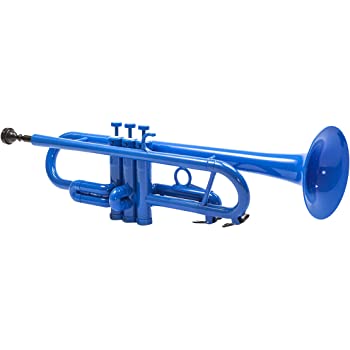
Beginner Model Trumpet Vs Professional Model Trumpet
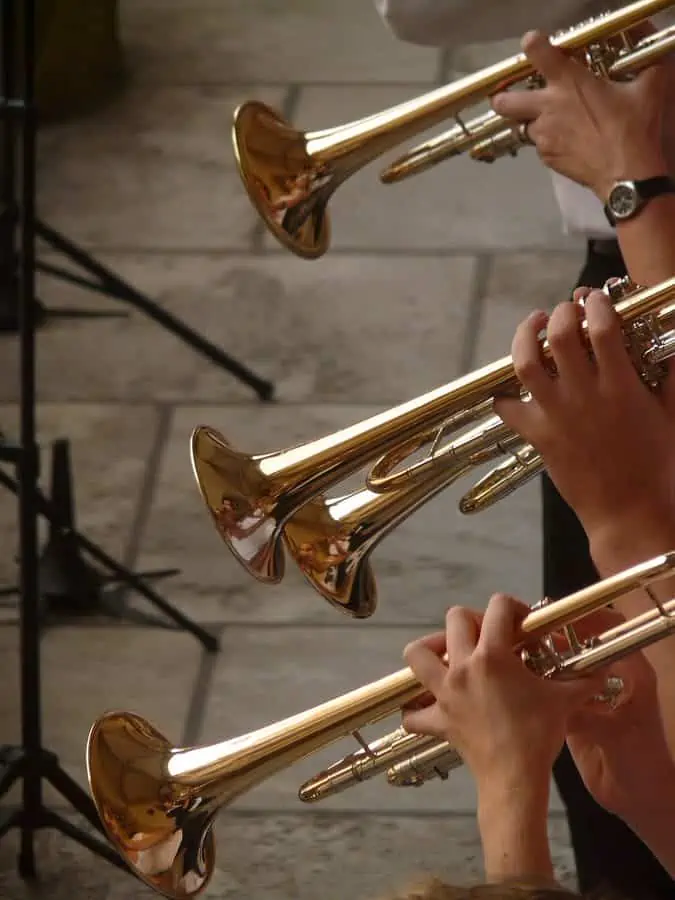
Another consideration in choosing your instrument is quality. Here you come to your first major choice; do you want an instrument of high quality that will last you longer and hold a higher resale value for when you part and upgrade; do you want a cheaper, more basic model to get a feel for the trumpet and to decide whether or not it’s something you will continue with; or, failing that, something in the middle?
Most of you will want to start with a decent trumpet from a reputable brand, preferably made of brass with a lacquer finish. (Silver plating tends to be more expensive.) Buying a Yamaha or Besson which are towards the top end of the beginner level instruments will hold better resale value as they are easily recognisable and respected brands. Options include Bach Stradivarius, Smith-Watkins, Yamaha (various models). This list is endless but once again the quality you’re looking for above all else is sound, some trumpets are much brighter than others. As a general rule, you’re looking for a bright sound when playing in Big Bands, musical theatre pit bands and Jazz Bands and a darker sound for brass bands, lots of orchestral music and solo material.
A beginner model trumpet will be much brighter and will usually have more resistance in the upper register to prevent the player from over-blowing and ruining his/her chops. (A professional instrument, depending on the model, will have little resistance, but will cost you a good bit more.)
Mouthpieces
The mouthpiece is the link between the vibration you’re creating with your lips and the trumpet itself and varying the size and shape of this receiver can affect the way the air travels through the horn and therefore changes the sound. For a lot of trumpet players, this is the ‘Aladdin’s Cave’ section of the equipment needed. There are countless options out there and it would be impossible to review them all here but the most common trumpet mouthpiece to start on is the Bach 7C. The “7” refers to the rim diameter and the “C” is the cup. This mouthpiece is “Average” and “Medium” in cup volume. The smaller cup diameter is a great place to start and you can adjust the rim diameter and the cup size by trying out different mouthpieces as you grow to learn more about your own playing style.
Recommended Manufacturers; Bach, GR, Yamaha, Warburton
Taking care of your instrument
Trumpets are pretty easy to look after, and mouthpieces even more so. All you need are oil, slide grease, and silver cloth.
- Oiling the valves: A new trumpet has a breaking-in period of about a month during which you should oil the valves more frequently. During the first month, you should oil the valves every other day. To do this, apply just two drops of good-quality valve oil (BLue Juice Valve Oil, AG Valve Oil, or Holton Valve Oil) on the silver section of the valve.
In addition, once a week, do a full oil change: Carefully remove the valves and wipe them clean with a lint-free cloth; apply no more than three drops of valve oil on the silver section of the valve, and insert the valve into the casing, tightening the retaining cap without too much force. Work on one valve at a time.
After the first month or so, oil your valves once a week or so. Every couple of months, give your valves an oil change. - Greasing the slides: Lubricate the main tuning slide with slide grease. (Hetman and Yamaha are two manufacturers.) Don’t apply too much lubricant, and only do this maintenance once a month. The goal is for the slide to move smoothly, but not too freely.
- Cleaning the mouthpiece: Mouthpieces are simple. Swab the inner diameter with a mouthpiece brush whenever you think of it.
How To Choose A Trumpet - Summary
Let’s keep things easy…
If you want the instrument to sound dark and mellow, go for a Cornet.
If you want an instrument that will withstand the rough and tumble of everyday life and are willing to sacrifice on sound quality, go for a Plastic Trumpet.
If you are buying for a youngster who struggles to hold a cornet or a trumpet, go for a pocket trumpet.
If you are looking for a cheap way into owning a trumpet and would like quick results, go for a beginner model Besson or Yamaha.
If you have the budget for a high-end instrument and have the patience to work on the technique needed to achieve a great sound go for a professional model Bach, Yamaha or a Smith-Watkins trumpet.
Hopefully that helps you make up your mind about what type of instrument to buy. Now you’ll need to do some research over which exact model to go for.
About the Author
Cai Isfryn
Every Friday
I Deliver This Unique Email…
4-Feature Friday does exactly what it says on the tin; sends an email every Friday with four of the most extraordinary things I’ve found that week
We guarantee no junk e-mail. Just one single e-mail, each week, with fantastic ideas and suggestions about anything I’ve discovered that I believe you’ll like. It might be music and songs, instruments, books, gizmos. Anything at all. Provided that it’s excellent.
These ‘4-Feature Friday’ emails are only accessible if you subscribe to my e-mail newsletter.
Read the next post in this series:




